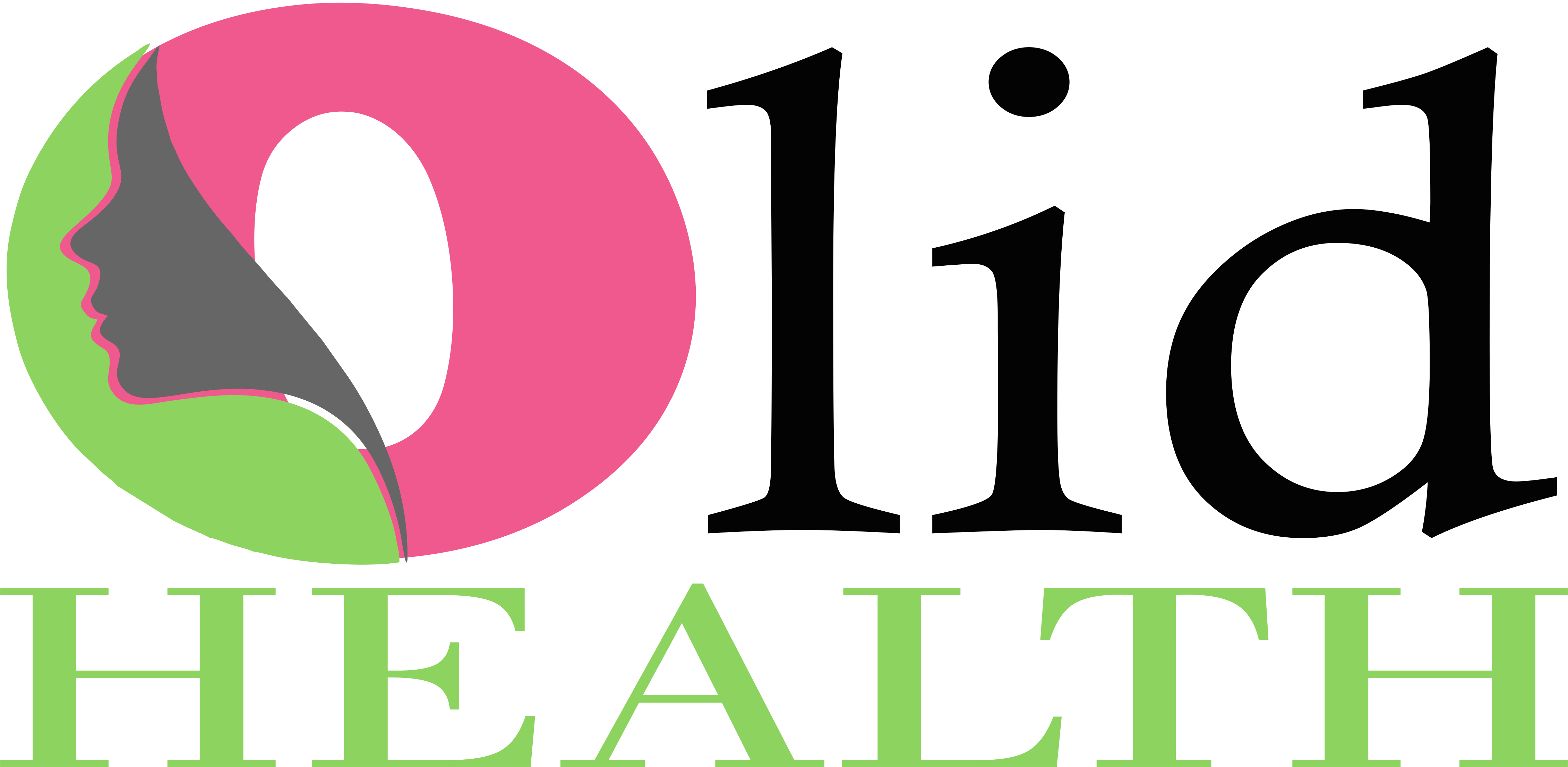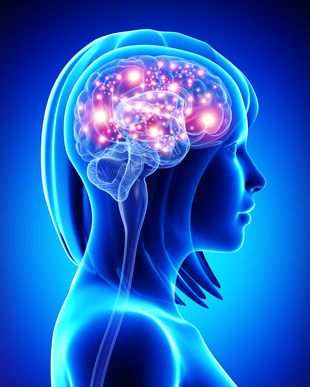Olidhealth.com – Amino acids are vastly known to be essential substances and building blocks in all living things. There are 9 essential amino acids and conditional essential amino acids that are important to keep our body in a perfect state. However, other amino acids also contribute to maintaining the body’s function such as non-essential amino acids. Basically, these amino acids have benefit function to maintain nerve and muscle health. Although this kind of amino acid can be made in our body, are we should have an external source to keep enough of it? Or is there a deficiency or side effect if too much of it? Here is an article to explain how important non-essential amino acids are including its benefit, side effects, and deficiency about it.
What Is The Function of Non-essential Amino Acids?
In spite of the fact that it is called a non-essential amino acid, it doesn’t mean it isn’t important to our health. Most of these kinds of amino acids are contribute to several functions such as promoting the immune system, helping to make red blood cells, etc [1]. For some reason, these types of amino acids may be needed for some chronic diseases.
For instance, people that have abnormal protein synthesis could have a deficiency of these amino acids. Although it is a rare case, it could happen without us noticing it or the symptom occurs in newborn babies. We explain each of them below as additional knowledge if it happens to people around us.
Alanine
This amino acid has many beneficial functions to improve muscle performance and reduce fatty acids in the liver. Alanine in the body has a modified form known as beta-alanine and it is somewhat different than its natural form called L-alanine [2]. This beta compound also could be found like it in supplement form or food that contains it. Moreover, beta-alanine cooperating with L-histidine can produce carnosine that is needed to enhance skeletal muscle and prevent lactic acid formation during an excessive workout.
Another benefit of alanine is could break down extra tryptophan that may cause a ‘bad’ mood. Furthermore, alanine also helps in the metabolism of vitamin B6 and other liver metabolites as alanine transaminase (ALT) enzyme. This enzyme also contributes to treating liver disease and helping produce emergency glucose in food shortage conditions. Moreover, consuming food with this amino acid may lower blood sugar though it isn’t been proven yet. Some studies also believe that alanine consumption could burn fat that lowers body mass in total.
Alanine Deficiency
This deficiency could occur if you also have a deficiency of leucine, isoleucine, and valine as branched-chain amino acids (BCAA) since its related to muscle metabolism. Having low blood sugar or hypoglycemia is also linked to lower alanine levels in the body. Some symptoms that could occur if you have a low alanine level are as follows:
- Tiredness
- Fatigue due to low blood sugar
- Sudden change mood
- Low or loss of appetite
- Weaken muscle strength
- Dizziness
The Side Effect of Alanine
Though it has benefits to maintaining the liver function, alanine also has side effects if too high of it and cause other health problems. Damaged liver caused by excessive alcohol consumption, viral infection, or hepatic disease could inflate ALT levels within the liver and blood vessels. Moreover, medication like ibuprofen and aspirin could also elevate the ALT levels. In some cases, this condition may doesn’t have any symptoms, but mild symptoms could be happening such as:
- Abnormal fatigue
- Abdominal pain
- Yellowing skin and eyes (jaundice)
- Nausea and vomiting
- Easily exhausted when doing a small activity
This symptom looks like have the liver disease since ALT is related to liver function. If you have this symptom, you can check your ALT level via a blood test. It helps to monitor health issues especially in the liver that happen within your body and finds a solution with your doctor to treat them.
Serine
Serine is commonly in L-serine form that plays a role in various protein production. It has an essential role in the nerve system especially in the formation of the myelin sheath that is important to enhance signal delivery between the brain and other functionalized organs. It also has beneficial functions such as helping glutathione production (serve as a natural antioxidant and immunity agent), relieving stress symptoms, assisting in saccharide metabolism, and improving liver health.
This amino acid also could improve sleep order and reduce insomnia, based on some research. Moreover, some studies believe that L-serine supplements may reduce blood sugar levels, boost brain power, and even help to fight cancer [3]. However, supplementation of this amino acid should be supervised by a nutritionist. It would be good if you take natural food like palm dates to improvise your serine needs.
Serine Deficiency
Though this amino acid can be self-made in the body, some conditions could trigger serine deficiency. Malfunction L-serine enzyme synthesis is the cause of this deficiency. Moreover, if it doesn’t treat soon, it can affect methionine metabolism and causes other problem related to nervous illness.
In some cases of newborn babies or children, low serine levels could cause seizures and psychomotor retardation. Another symptom like polyneuropathy (a damaged nerve that affects signal delivery) could occur in adults. Knowing its symptom could help to cure it as soon as possible. Consuming L-serine supplements may reduce its symptom and prevent a worse case at a later time.
The Side Effect of Serine
it’s safe to consume serine supplements in reasonable amounts. However, we do not recommend overconsuming it. Although this amino acid could induce good sleep, too much of it has side effects such as vomiting, nausea, uncontrollable urination, diarrhea, and stomach upset.
The doctor’s suggestion is needed to make sure its dosage recommendation since every nerves disease has its own dosage based on age and body weight. Sometimes, people with chronic fatigue need this supplement to relieve its a symptom but overusing it make it worsen and may damage the kidney and liver.
Asparagine
The main function of this amino acid is to maintain and develop the brain’s function. Asparagine has fundamental existence within our brain and we could have neurodegenerative effects if we don’t have enough of it [4]. Furthermore, this substance can be produced in the body with asparagine synthetase but it also can be obtained via food intakes like meat and poultry. However, asparagine intake can’t be transported to the brain due to restriction access by the blood-brain barrier. So, the main source of asparagine in the brain solely depends on asparagine synthetase within the body.
Other functions of asparagine are to help manage liver health, contribute to breaking down excess ammonia substance, and could serve as an energy charge in muscle during intense exercise. Moreover, some studies suggest that asparagine are linked to lowering fatigue symptom.
Asparagine Deficiency
Meat and egg are examples of asparagine source food, so we might have little possibility to have this deficiency. If we lack this amino acid due to having low consumption of this food, the symptom that could happen such as fatigue, weakness, cognitive impairment, and decreasing immune system. However, people with specific conditions like asparagine synthetase deficiency would have more serious symptoms than it.
As we mentioned before, the brain solely relies on asparagine production within the body and can’t other sources besides it. If the body couldn’t produce enough of it, that will be problematic. Asparagine synthetase deficiency is a rare condition that can affect brain development. Most individuals with this case will have different seizures including epilepsy, convulsions, rigid movement, and many more. For additional information, people with this condition have a high mortality rate when past childhood state.
The Side Effect of Asparagine
There are no cases of asparagine intoxication caused by over-consume amino acid-rich food. However, there are some side effects that would be occurring if you take L-asparagine injection. The common side effect of asparagine as follows:
- Nausea and vomiting
- Drowsiness and tiredness
- Headache
- Stomach cramps
- Fever and chill
- Loss of appetite
L-asparagine is commonly used to treat leukemia and serves as a chemotherapy drug that administers for serious cases.
Aspartate
Aspartate or known as aspartic acid is categorized as non-essential amino acid because its abundant by nature and can be self-produced within the body. This amino acid is mainly used as a mineral carrier to transport various essential minerals that the body needs it. The common mineral that can be combined with aspartate includes zinc (Zn), copper (Cu), magnesium (Mg), potassium (K), iron (Fe), and manganese (Mn). Furthermore, it also could boost muscle performance and serve as an electrolyte to hydrate muscle tissue [5].
Another function of aspartate is making antibodies in the immune system. Moreover, it also helps to regulate reproduction systems such as sperm production and the menstrual cycle. On the other hand, aspartate is also related to testosterone production. It also contributed to helping the signal system in the central nervous system as same as asparagine do.
Aspartate Deficiency
This deficiency couldn’t happen unless you are a vegan or have less red meat consumption. Food like meat and poultry are the main sources of this amino acid and we should have more than enough of it. If you have a lack of aspartate, the symptom themselves such as fatigue, weakness, and mood swing because aspartate is related to the nervous system and energy carries. This amino acid also takes a role to bring out excess ammonia, so if this deficiency occurs, it could be built up in the bloodstream and may damage the liver, kidney, or even brain.
The Side Effect of Aspartate
Sometimes, aspartate supplements are often misused for some athletes since magnesium aspartate could increase blood cells and improve muscle strength during workouts. However, excessive aspartate consumption could lead to brain damage. The side effect of aspartates such as depression, diarrhea, headache, change the mood, and even seizures could happen. Magnesium or zinc supplements could reduce this amino acid level in your body.
Glutamate
Glutamate or other familiar names called glutamic acid is one of the most abundant amino acids in the nervous system. In fact, we also well know this amino acid in its salt form as monosodium glutamate (MSG) [6]. However, its function may have different since glutamate also could be produced within the body.
This amino acid contributes to linking the neurotransmitter in the cell and stimulating brain development at an early age. Based on some studies, glutamate could reduce memory loss and promote learning new skills. In some cases, glutamate is believed to treat gastrointestinal problems such as low stomach acid (hypochlorhydria).
Deficiency of glutamate
It believes that a person could have this deficiency but the actual case is hardly be found. Some researchers believe that if they’re a person who has low glutamate, it may have these symptoms.
- Mental disorder – Low glutamate could decrease the nervous system.
- Have less energy – Related to change mood and gut health that need adequate of it.
- Insomnia – This symptom causes the body restless.
- Hard to make a decision – Confusion also includes this symptom.
The side effect of glutamate
Some people have warned the use of MSG that could harm if too much of it. The Umami flavor that comes from MSG used in dishes and cuisine could be addictive and hard to stop consuming. Moreover, glutamate also has side effects that could lead to neurodegenerative disorders such as dementia or Alzheimer’s since build-up could interfere with brain signals. However, this claim can be neglected since there is the blood-brain barrier that suppresses amino acid intake comes to the brain.
Some doctors believe that each individual has their own resistance to taking up MSG. People who have less strong barriers could leak glutamate and other amino acid come into the brain and make this disorder happen. Other symptoms that could occur if too much glutamate is as follow:
- Headache (Migraine and confusion)
- Neurological dysfunction (Epilepsy and Lou Gehrig’s disorder)
- Depression (In the worse case could lead to schizophrenia symptoms)
- Diabetes
- Increase pain sensitivity
Ornithine

As for additional information, ornithine can’t be converse to another kind of protein same as taurine. However, its benefit proves them to have used it in any way. Some studies found that L-ornithine supplement could treat a hepatic disorder, reduce fatigue symptoms, and combined with arginine could boost muscle performance in powerlifting course.
Ornithine Deficiency
The rare condition could trigger this deficiency such as ornithine transcarbamylase deficiency. This condition is mostly happening in males than females because it is caused by genetic disorders. Lack of ornithine could cause build-up ammonia and impairment urea cycle. The symptom could appear in mild and severe cases during childhood such as:
- Vomiting and nausea (mild)
- Weakness (mild)
- Loss of appetite (mild)
- Irritability (mild)
- Seizures (severe)
- Build up fluid in the brain (severe)
- Inflated liver (severe)
- Coma (severe)
The side effect of ornithine
Ornithine also has side effects if you overconsume L-Ornithine supplements such as stomach upset, vomiting, nausea, and diarrhea. Moreover, in serious cases, it could lead to hyperornithinemia. This condition is practically rare to happen and it could cause partially or fully vision loss if don’t have treated well. This disorder is caused by inherent mutation.
Taurine
Taurine could be a unique amino acid since it is rarely seen in 20 important amino acid lists, based on some nutritionists. However, what is the reason they do that? Because taurine is abundant in the muscle tissue of animals and is barely considered an amino acid. Taurine can’t take a part in producing protein since it isn’t a precursor of protein.
We classify this amino acid as non-essential amino acid since it has an important role in our body. It has main benefits to aid the nerve system, regulate blood pressure, maintain muscle and eye health. Moreover, some scientists have speculated the function of taurine such as improving intelligence, preventing obesity, regulating stress hormone, and even maintaining heart health, particularly in heartbeat control [8].
Taurine Deficiency
The possibility case of this condition is nearly zero if we have a healthy lifestyle and consume healthy food. However, some foods can decrease taurine absorption. Monosodium glutamate or MSG can affect and reduce taurine function in the body. Moreover, bacteria like candida could accidentally ingest since they can be found in uncooked or partially cooked food. This bacteria also could disturb taurine production within the body. if you have this deficiency, you are prone to have
- High blood pressure
- Possibility of having a visual disorder
- Liver and kidney disorder
- Depression and anxiety
- Obesity
Although these symptoms are similar to other diseases, we can try to treat them with consume taurine-rich food, using supplements, and reducing MSG consumption. If these attempts reduce the symptom, it means we successfully recovering from this condition.
The side effect of taurine
Taking taurine supplements is mostly safe but in moderation amount. Taurine also can be found in an energy drink that can be misused and over-consumed taurine compounds. Moreover, some people have been reported that taurine may have side effects such as:
- Nausea
- Headache
- Irregular walking step
- Dizziness
- Confused
The side effect of taurine still needs further research because it has little information about specific effects that could happen in our body.
Carnitine
This amino acid can be categorized as branched non-essential amino acid since it is typically produced by methionine and lysine. Carnitine has the main function to generate energy for the whole body. Moreover, it also serves as a transporter both fatty acid that is converted to energy and toxic substance that is removed to prevent build-up [9].
There is the various degree of research to find out the benefit of carnitine in some cases. For example, L-carnitine is another form of carnitine that has benefits to protect the eyes from UV radiation, improve bone and muscle health, and reduce the risk of cardiovascular disease. L-carnitine is also known as a sports supplement. Moreover, some people believe that consuming this supplement during intense workouts could relieve muscle soreness and boost energy.
Carnitine Deficiency
There is a rare case if people have this deficiency because we almost have all of it in our meals. However, this condition could occur because of several factors such as genetic disorder, disease complications, and antibiotic consumption. The expert divides this condition into two distinctive deficiencies.
- Primary carnitine deficiency – This is a rare case caused by a genetic disorder in fatty acid oxidation that affects the carnitine transport system. It prevents intake to skeletal muscle and disturbs carnitine absorption. It could lead to developing heart disease and deteriorating brain function. Other symptoms could occur such as vomiting, dizziness, weakness, and even hypoglycemia.
- Secondary carnitine deficiency – Some studies suggest that this disorder have less severe than the other one. The cause of this condition are vary and is commonly caused by other metabolic disorders or consumption of certain medications. moreover, the accumulation of carnitine in the urine is a sign of having this type of deficiency. the symptom that could be happening such as swelling, weakness, chronic fatigue, and irritability.
This disorder may be related to liver and kidney health since carnitine also contributes to toxin transportation. Chronic carnitine deficiency could lead to cirrhosis and kidney failure if left untreated.
The Side Effect of Carnitine
Though carnitine deficiency is dangerous, excessive carnitine is also bad for our health. Overdosage consumption of carnitine has side effects including vomiting, nausea, and stomach pain. Furthermore, consumption of more than 3 grams a day of carnitine can cause diarrhea, abdominal pain, and change in body odor, based on some research.
D-amino acid is necessary?
This information is just as additional since the most common form of amino acid is L-amino acid. However, it could be important to know what type of amino acid do you consume and its possible benefit to our health. D-amino acid is stereogenic from the L-amino acid version. To put it simply, D-amino acid is mirrored version of L-amino acid.
Is D-amino acid as important as other amino acid? The answers are yes and no. D-amino acid is a residue in protein production that might have side effects or benefits to our health. There is still little information about these kinds of amino acids but some researchers believe that it can be key to treating cancerous disease.
Conclusion
Amino Acids are divided depending on their benefit and how the body could produce them. Usually, there are three categories and two of them have been explained in the previous section. Non-essential amino acids are considered to have fewer needs since the body can make them. However, there is some benefit that may be you don’t know about it.
Most of them have benefits to maintain and improve muscle tissue. Moreover, asparagine and serine also have a crucial role in brain function and regulate hormones that are important to maintain mood, sleep, and appetite. Furthermore, deficiency of these amino acids could occur in some degree of the condition and the symptom itself could be fatal. Too much non-essential amino acid at a certain level also could harm the body if you are not aware of what meal you should be limited to.
Reference
[1] https://www.ncbi.nlm.nih.gov/pmc/articles/PMC4935284/ – Function on non-essential amino acid in general
[2] https://www.ncbi.nlm.nih.gov/pmc/articles/PMC3374095/ – Beta-alanine for improving exercise performance
[3] https://www.ncbi.nlm.nih.gov/pmc/articles/PMC1223326/ – L-serine benefit in nerve function
[4] https://www.ncbi.nlm.nih.gov/pmc/articles/PMC5723983/ – Asparagine overview: synthesis, function, and structure
[5] https://www.ncbi.nlm.nih.gov/pmc/articles/PMC5340133/ – D-aspartic acid for enhancing muscle mass and strength
[6] https://www.ncbi.nlm.nih.gov/pmc/articles/PMC6952072/ – Risk of MSG
[7] https://nutritionj.biomedcentral.com/articles/10.1186/1475-2891-13-53 – L-ornithine for boost sleep quality
[8] https://www.ncbi.nlm.nih.gov/pmc/articles/PMC5933890/ – Taurine as a therapeutic agent
[9] https://www.ncbi.nlm.nih.gov/pmc/articles/PMC5872767/ – L-carnitine for post-exercise supplement









